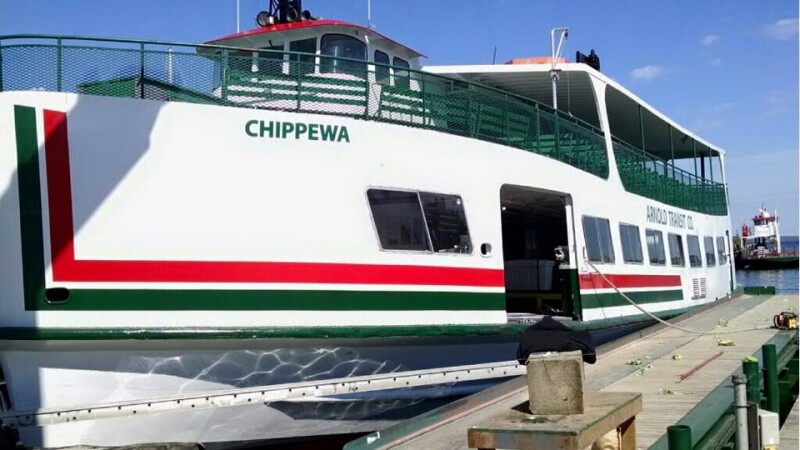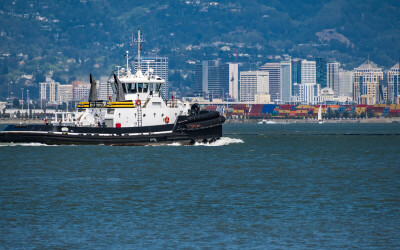The Mackinac Island Ferry Co. received a $3.06 million grant from the Michigan Department of Environment, Great Lakes, and Energy through the state’s Fuel Transformation Program in March.
The funds will be used to replace two 1988 diesel engines with new electric propulsion motors on the Chippewa ferry. It is projected that GHG emissions will be reduced by 14,152 metric tons of carbon dioxide and 887 metric tons of nitrogen oxides over the Chippewa’s lifetime.
The modernization of the ferry’s hull has already begun, and the engine conversion is expected to be completed within the next two to three years.
The grant covers half of the project, which includes the installation of 1.5 MW of shore power infrastructure at the Mackinaw City ferry dock. Electrification infrastructure upgrades are also planned for the Mackinac Island and St. Ignace ports.
The Chippewa conversion is serving as a pilot project for the future electrification of 28 Mackinac Island ferries. The project marks the beginning of the Mackinac Economic Alliance’s Marine Mobility Strategic Plan, established to create year-round shipbuilding jobs in the region.
“Converting a ferry in the Mackinac fleet to electric will build on our clean-energy leadership and help us achieve the goals of the MI Healthy Climate Plan to make our state carbon-neutral by 2050,” Gov. Gretchen Whitmer said in a statement announcing the Chippewa conversion.
The Fuel Transformation Program financially aids the conversions of qualifying diesel engines in vehicles and vessels, as well as other equipment, with clean alternatives that produce little-to-no emissions. Over a three-year period, the program will support similar upgrades with $30 million in grants. The funds were made available through the state’s $64.8 million settlement with Volkswagen. The program closed its second round of grant applications and an additional $6 million will be allocated for freight switchers, tugs, and shore power.



[5] copy.png.small.400x400.png)

